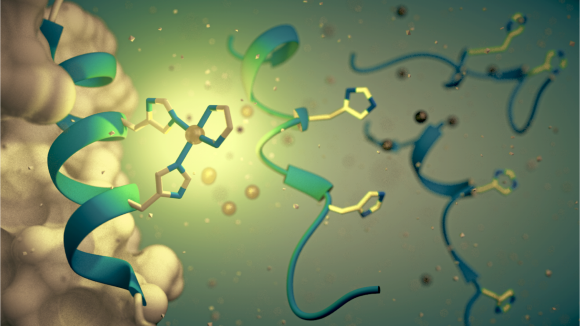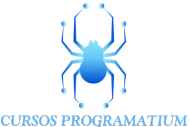
The Asian Chemical Biology Conference (ACBC) is a leading forum in the chemical biology community, providing a comprehensive framework that unites academia, industry, and research institutions across Asia and beyond. Its structure fosters collaboration, facilitates the exchange of innovative ideas, and nurtures scientific discovery in chemical biology. This multidisciplinary event, held annually or biannually, offers an essential platform for understanding and advancing chemical biology, a field that merges chemistry and biology to investigate molecular mechanisms of biological systems and discover new therapeutic interventions. Visit acbc2023.org.
The ACBC’s framework is meticulously designed to provide a seamless and enriching experience for participants. It is characterized by a well-organized agenda, diverse participation, and a rich array of scientific sessions, workshops, and networking opportunities. This article outlines the core components and structural aspects of the ACBC, highlighting how its well-established framework facilitates knowledge dissemination, innovation, and collaboration.
Core Structure of the ACBC
The framework of the ACBC is composed of several key elements that cater to the wide range of interests and expertise within the chemical biology community. The structure ensures that the conference remains a vital source of scientific innovation and interaction across various subfields of chemical biology.
1. Scientific Sessions and Presentations
One of the most important aspects of the ACBC is its rigorous scientific sessions, which are divided into plenary talks, keynote addresses, oral presentations, and poster sessions. These sessions are the backbone of the conference, offering participants the opportunity to present their latest research, engage in critical discussions, and learn from their peers.
- Plenary Talks: These talks are delivered by distinguished scientists who have made significant contributions to chemical biology. The plenary speakers typically represent various subfields, ensuring that the conference covers a broad spectrum of topics, from chemical proteomics to epigenetics and beyond. The plenary sessions serve to inspire attendees by showcasing cutting-edge discoveries and the future direction of chemical biology.
- Keynote Addresses: Like the plenary talks, keynote addresses are given by prominent figures in the chemical biology community. However, they are more focused on specific research areas or emerging trends, providing in-depth analysis and discussion of current challenges and opportunities in the field.
- Oral Presentations: These sessions allow researchers to present their work in a formal setting, followed by questions and discussions. Presenters are selected based on the quality of their research, and the topics are diverse, reflecting the wide-ranging interests of the chemical biology community. Oral presentations are often grouped into thematic categories, such as drug discovery, chemical genomics, or bioorthogonal chemistry, allowing attendees to choose sessions aligned with their interests.
- Poster Sessions: Poster presentations are another crucial component of the ACBC. These sessions provide a more informal environment where researchers, particularly early-career scientists and students, can present their work. Poster sessions often foster rich, one-on-one discussions between presenters and attendees, making them an excellent opportunity for networking and feedback. The poster format allows for a broader range of research to be showcased, including preliminary findings or work in progress.
2. Workshops and Tutorials
In addition to the scientific presentations, the ACBC framework includes workshops and tutorials that provide hands-on experience with emerging tools and techniques in chemical biology. These sessions are designed to enhance the skills and knowledge of participants, particularly those who are new to certain methodologies or who wish to deepen their expertise in specific areas.
Workshops at the ACBC cover topics such as:
- Chemical Synthesis and Design: Researchers learn to design and synthesize novel compounds for use as chemical probes, drug candidates, or biological modulators.
- Proteomics and Mass Spectrometry: These workshops focus on advanced techniques for analyzing proteins and their interactions, which are critical for understanding cellular processes and disease mechanisms.
- CRISPR and Genome Editing: Tutorials on CRISPR-based technologies provide participants with insights into gene editing tools and their applications in chemical biology.
- Data Analysis and Bioinformatics: As chemical biology increasingly intersects with computational biology, workshops on bioinformatics, data visualization, and machine learning are becoming essential to the ACBC framework.
These workshops are led by experts in the field and are tailored to different skill levels, ensuring that both novices and experienced researchers benefit.
3. Special Sessions on Emerging Trends
To remain at the cutting edge of scientific research, the ACBC incorporates special sessions that focus on emerging trends and future directions in chemical biology. These sessions often explore new technologies, methodologies, or interdisciplinary approaches that have the potential to revolutionize the field.
Recent special sessions have covered topics such as:
- Artificial Intelligence and Machine Learning in Drug Discovery: These sessions explore how AI is being used to accelerate drug discovery, improve target identification, and optimize chemical synthesis.
- Chemical Epigenetics: A growing field of interest, chemical epigenetics focuses on small molecules that can modify epigenetic marks, such as DNA methylation and histone modifications, to regulate gene expression.
- Synthetic Biology and Chemical Biology Intersections: The integration of synthetic biology and chemical biology has opened new avenues for designing artificial biological systems and engineering metabolic pathways for therapeutic purposes.
These sessions often feature collaborative efforts between researchers from different disciplines, showcasing the interdisciplinary nature of modern chemical biology.
4. Collaboration and Networking Opportunities
The ACBC framework places a strong emphasis on fostering collaboration and networking among its participants. Recognizing that scientific discovery often happens at the intersection of ideas and disciplines, the conference offers numerous formal and informal opportunities for interaction.
- Networking Receptions: These social events provide a relaxed atmosphere where participants can engage in conversations, exchange ideas, and build connections that may lead to future collaborations.
- Panel Discussions: Expert-led panels address major challenges in chemical biology, such as the ethical implications of gene editing or the development of new antimicrobial agents. These discussions often involve perspectives from academia, industry, and regulatory bodies, providing a holistic view of the topic.
- Mentoring Programs: The ACBC supports the growth of early-career scientists by offering mentoring sessions, where students and postdoctoral researchers can interact with senior scientists and industry professionals. These sessions provide career guidance and professional development advice, helping young scientists navigate the complexities of a career in chemical biology.
5. Exhibitions and Industry Engagement
Industry engagement is a critical aspect of the ACBC framework, bridging the gap between academic research and commercial applications. The conference typically features an exhibition hall where companies showcase their latest technologies, products, and services that are relevant to chemical biology.
Pharmaceutical companies, biotech startups, and providers of laboratory equipment and reagents participate in these exhibitions, offering attendees the chance to learn about new tools and technologies that can enhance their research. Additionally, industry representatives often participate in scientific sessions and workshops, contributing valuable insights from a commercial and translational research perspective.
The conference also includes industry-academia collaboration forums, where researchers can explore potential partnerships with companies. These forums are designed to facilitate knowledge transfer, joint research initiatives, and commercialization of scientific discoveries.
Conclusion
The Asian Chemical Biology Conference’s well-structured framework is instrumental in advancing the field of chemical biology across Asia and beyond. Its scientific sessions, workshops, special sessions, and networking opportunities create an ecosystem that promotes collaboration, innovation, and the exchange of knowledge. By bringing together diverse participants from academia, industry, and government institutions, the ACBC fosters interdisciplinary research that is essential for tackling the complex challenges facing modern chemical biology.
The conference’s emphasis on emerging trends ensures that the field continues to evolve, integrating new technologies such as AI, synthetic biology, and chemical epigenetics. As a dynamic and forward-looking event, the ACBC is shaping the future of chemical biology, offering researchers the tools, insights, and collaborations needed to make significant scientific breakthroughs.
